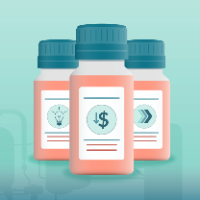Phase-appropriate analytical control of cell therapy manufacture in early development stages
Cell & Gene Therapy Insights 2024; 10(10), 1397–1405
DOI: 10.18609/cgti.2024.160
Phase-appropriate analytical controls are critical to ensure the safety, efficacy, and quality of cell therapy products throughout the drug development lifecycle. In the early stages of development, analytical strategies focus on essential attributes that define the product while maintaining the flexibility to adapt to evolving regulatory requirements. This article examines the key analytical methodologies employed in the early phases of cell therapy manufacturing and highlights their significance in maintaining product quality. It discusses the evolving nature of analytical controls as development progresses toward clinical trials and commercialization, providing insights into regulatory expectations. Key elements such as identity, purity, potency, and safety are discussed in the context of phase-appropriate controls, along with the challenges faced by manufacturers in early-stage development. Case studies and real-world examples of cell-based therapies, such as CAR-T cell therapies, were included to illustrate the practical implementation of these analytical strategies.
